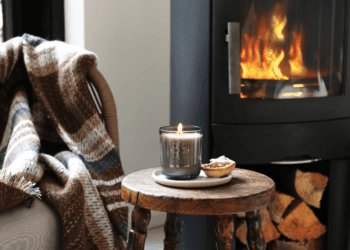It might sound obvious but breathing clean air on a daily basis takes a little more thought than you might realise
When was the last time you took a deep lungful of fresh forest air? Or went for a long walk on the beach, inhaling and exhaling in a salty sea breeze?
If the answer to both of those questions is, ‘I have no idea’, it’s worth taking a look at the environment you’re spending most of your time in.
The Irish Thoracic Society, Ireland’s national body for health professionals working in respiratory care, is urging the public to think more carefully about the air that we breathe in honour of World Lung Day (25 September).
With latest figures showing an estimated 380,000 people living with Chronic Obstructive Pulmonary Disease (COPD), around 450,000 people living with doctor-diagnosed asthma, and almost 2,700 people being diagnosed with lung cancer each year, the importance of breathing clean air and maintaining healthy lungs has never been more crucial.
In addition, exposure to air pollution during pregnancy is associated with low birth weight and pre-term birth, while children living in polluted areas are more likely to suffer from coughs, wheezes and asthma, and to develop low lung function as teenagers.
Orla Veale, Chief Executive of the Irish Thoracic Society, warns: “Air pollution can be as dangerous as passive smoking, with those living along a busy road carrying about the same risk as passively smoking 10 cigarettes a day.”
She added: “For adults, the possible long-term effects include chronic cough, phlegm, wheeze, accelerated loss of lung function, and potentially serious respiratory disease. For those with existing lung diseases, air pollution can give rise to asthma attacks or a flare-up of COPD.”
If you have a persistent cough for three months or longer, shortness of breath and wheeze, and recurrent chest infection, make an appointment to see your GP.
Top tips for taking a breath of clean air
1. On the home front
Make sure your home is well ventilated and air your house for 5-10 minutes several times a day, especially during and after cooking, taking a shower, vacuuming or cleaning with disinfectants and sprays. Maintain gas appliances and make sure that chimneys are cleaned and well-ventilated, burning only dry and untreated wood. Install alarms for smoke and carbon monoxide. Be aware of allergens and dusts generated from pets, plants, carpets and damp mould. Smoking should never be permitted indoors and consider purchasing an air purifier to clean the air.

2. On the trot
Make sure to exercise every day, but avoid exercising during rush hour or on busy streets with lots of traffic fumes. Keep a healthy distance from the road, or junctions where cars are idling. Seek out green spaces and public parks if you can. For daily air pollution updates, check out airquality.ie.
3. On the road
If you’re a car driver, think about purchasing a vehicle that uses the least fuel or is least polluting. Car sharing will also ease the pressure of the school run or work commute. Turn your engine off when stationary, reduce your speed, and have your car serviced regularly. If possible, walk, cycle or use public transport, instead of driving the car.
4. On the shop floor
A total of 15-20 per cent of COPD cases are thought to be work-related. Consider if you are inhaling dusts, gases or fumes at work. From building sites to garages, factories to farms, think about how your work environment can be made safer for you, and ensure you wear any recommended personal protective equipment. Companies might consider periodic screening of exposed workers to identify any early signs of adverse respiratory effects. Take the Your Lungs at Work test here which assesses the impact of your workplace on your lung health.

5. Smoking and vaping
If you smoke, the most important step that you can take to breathe clean air is to quit. Containing at least 250 carcinogenic or toxic chemicals, second-hand smoke can also harm people who do not smoke. In addition, vaping impairs respiratory health and is particularly risky at a younger age, as addictive nicotine exposure can lead to long-term tobacco use. Vaping in children also impacts concentration and can have a negative impact on the developing brain. To order a quit kit, or to talk to a HSE stop smoking adviser, check out quit.ie or Freephone 1800 201 203.








